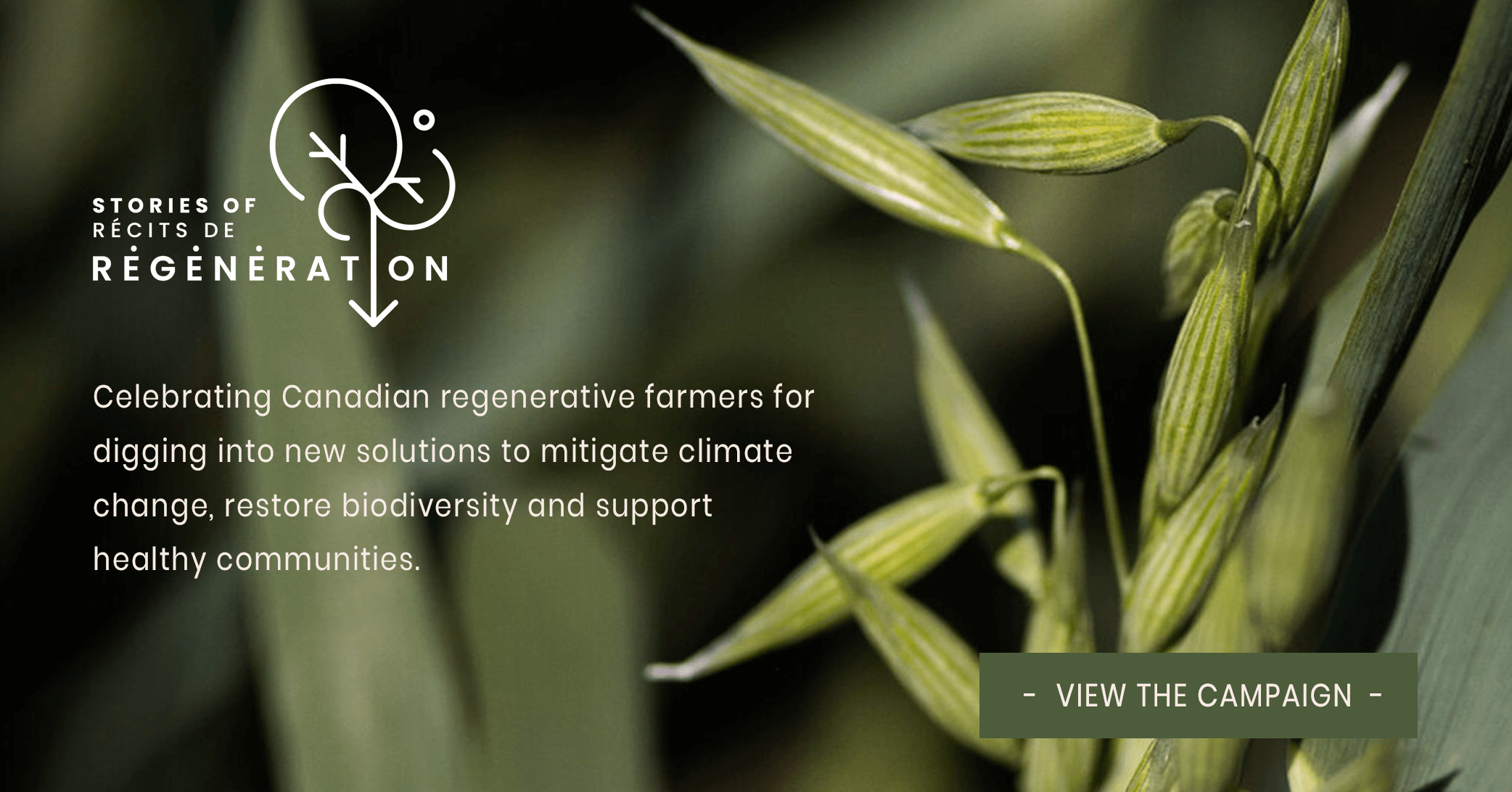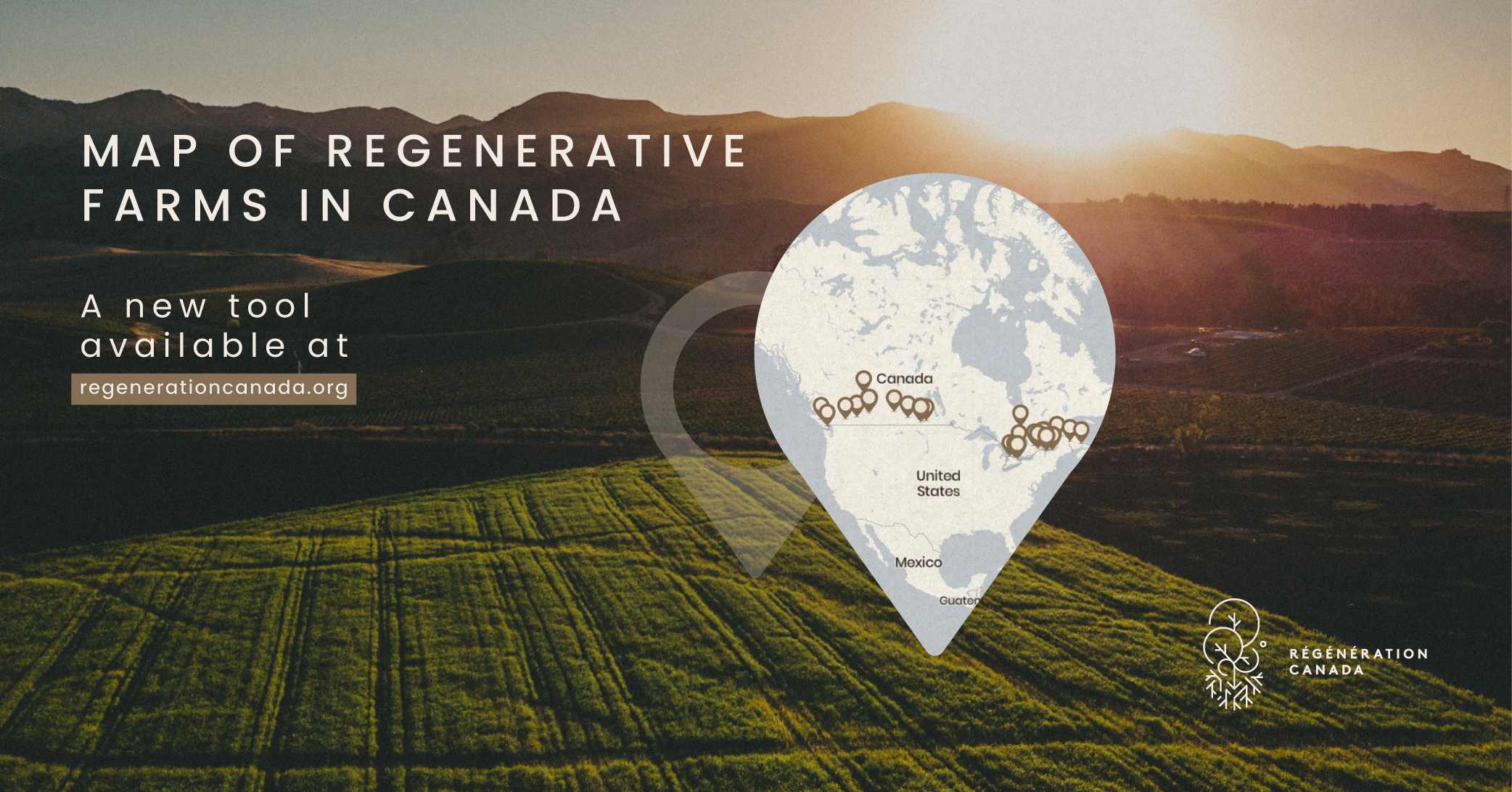Thank you to everyone who joined us for this event!
– Photo gallery –
– Discover the farm –
Discover South Glanton Farms, a mixed farming operation inspired by agroecology, before feasting on regeneratively raised Black Angus beef!
Regeneration Canada is delighted to partner with the Manitoba Forage and Grasslands Association (MFGA) to bring you a remarkable field-to-fork event like you’ve never experienced. Join us on August 19th with farmers Ryan and Sarah Boyd at South Glanton Farms in Forrest, Manitoba. Ryan and Sarah will guide guests on an engaging journey through their family farming operation, which includes cattle, grain, and a focus on building soil health.
Speakers Paige Kennedy, Education and Research Manager of Regeneration Canada, and Joel Williams, soil health educator, will discuss regenerative agriculture and the impacts of multi-paddock grazing and livestock integration on the health of the soil.
The day will conclude with a delicious, family-style meal incorporating ingredients produced on the farm. The meal will be prepared by chef J.D. Braid of Brandon, MB.
About the hosts
Ryan Boyd is a third generation farmer with cattle and crops on South Glanton Farms. Ryan has been involved with the farm for many years, and began proposing new ideas to his father as he became more involved. Returning to the farm in 2006 after finishing school, Ryan put into practice some of the innovative theories he had learned about cropping and extended grazing systems. He knew he didn’t want to expand the acreage of the farm, but rather work towards increasing productivity. This has led to the farm having a large focus on embracing the principles of agroecology to create a diverse farming system.
The farm consists of ~300 black Angus beef cows, a diverse crop rotation, and annual forages for grazing and greenfeed. The operation works to improve natural resources so they don’t have to rely on synthetic inputs (fertilizers, herbicides) and to produce healthier products. The Boyds use a mob grazing system, which mimics the way ruminant animals, like buffalo, roamed the land in years past. Through adding diversity and incorporating livestock, the farm is able to capture more carbon into the soil. A goal of Ryan’s is to leave the land better than it was before, so that future generations can thrive.
– Discover the farm –
About the speakers
Paige Kennedy is the Education & Research Manager at Regeneration Canada. She obtained her B.Sc. in Agriculture from the University of Guelph and completed her MSc. in Soil Science at the University of Saskatchewan. She holds an Agronomy Certificate from Olds College and is an Articling Agrologist with the Saskatchewan Institute of Agrologists. Paige is passionate about knowledge mobilization in agriculture, and making science digestible to a broader audience. In the past, she has worked on dairy cattle operations, pursued agronomic internships, and worked in research. Paige is also increasingly involved with the family beef operation.
Joel Williams is an independent plant and soil health educator providing lectures, workshops and consultation on soil management, plant health and integrated approaches of sustainable food production. Joel has worked extensively in Australia, UK and Canada (where he’s currently based) and has been fortunate enough to lecture to farming audiences internationally. Joel has a Bachelor of Agricultural Science (AUS) specialised in plant and soil dynamics and an MSc in Food Policy (UK) which focussed on food systems, intercropping and agroecological transitions.
About the chef
Chef J.D. Braid has been a Manitoba chef for nearly 30 years. He is passionate about providing new opportunities in the agricultural community and has served as the team captain and manager for the Manitoba Culinary team for 20 years, leading the team to the podium in multiple international competitions. He also won gold in the World Culinary Olympics in the individual category in 2008 and 2012, and in 2020, lead the first international Canada/USA culinary team to Silver.




